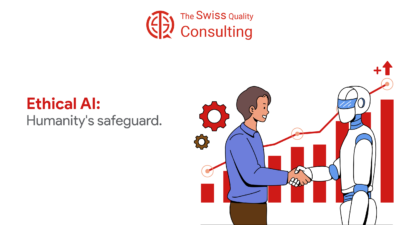Understanding the Impact of Timeliness on Corporate Success
In the competitive arena of business, where effective communication, strategic project management, and leadership are pivotal, the practice of attending meetings on time emerges as a fundamental yet often overlooked element. For business executives, mid-level managers, and entrepreneurs, recognizing and implementing punctuality is not just about respecting time; it’s about enhancing operational efficiency, promoting a culture of reliability, and fostering an environment where every moment is optimized for success.
The Ripple Effect of Delays in Meetings
Every minute counts in the business world. A delay in starting a meeting due to one’s tardiness is not merely a minor inconvenience; it’s a disruption that wastes valuable time of colleagues, undermines the meeting’s productivity, and sets a precedent for a lax attitude towards time management. In domains as diverse as change management, executive coaching, and generative artificial intelligence, where precision and adaptability are key, the importance of punctuality cannot be overstated.
Case in Point: The Cost of Waiting
Consider a scenario where a key decision-making meeting is delayed by just five minutes. This delay, seemingly insignificant in isolation, cumulatively translates into hours of lost productivity over time, potentially costing companies significant amounts in lost opportunities and inefficiencies.
Integrating Punctuality into Leadership and Management Skills
Leaders and managers bear the crucial responsibility of setting standards and expectations within their teams. Punctuality is a testament to one’s respect for others’ time, commitment to objectives, and personal integrity. As such, it should be integral to leadership training programs and management consulting initiatives. Executive coaching services, in particular, can play a pivotal role in embedding the value of timeliness in leaders, who in turn can inspire their teams to emulate these standards.
Strategies for Encouraging Timeliness
Effective strategies to encourage punctuality include:
– Setting clear expectations about meeting times and the importance of punctuality.
– Leading by example, where leaders showcase their commitment to timeliness.
– Acknowledging and rewarding punctuality to reinforce positive behavior.
– Implementing tools and technologies that remind and help individuals manage their schedules more effectively.
The Role of Generative Artificial Intelligence in Enhancing Punctuality
Generative Artificial Intelligence (AI) is revolutionizing how businesses operate, including optimizing schedules and enhancing time management. AI-driven tools can predict the best meeting times, send personalized reminders, and even automate the scheduling of follow-up activities, thereby reducing the likelihood of delays and improving overall meeting efficiency.
Effective Communication: The Catalyst for Timely Meetings
Effective communication is foundational to ensuring punctuality. By clearly communicating meeting agendas, objectives, and the importance of starting on time, organizations can significantly reduce delays. It’s about creating a culture where time is valued and efficiently utilized, which in turn, contributes to the overall success of business operations.
Conclusion
The significance of punctuality in meetings extends beyond mere etiquette. It’s a reflection of professionalism, respect, and a commitment to excellence. For businesses aiming to thrive in today’s fast-paced environment, fostering a culture of punctuality can lead to improved productivity, enhanced team dynamics, and greater success. Let’s take inspiration from this understanding and strive to value and respect each other’s time, recognizing punctuality as a key driver of business efficiency and success.
#Punctuality #BusinessEfficiency #EffectiveCommunication #Leadership #TimeManagement























